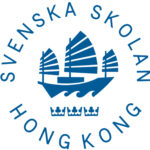CONTENT ON THIS PAGE PROVIDED BY:
Healthcare
Hong Kong has many world-class hospitals and medical facilities. Doctors, dentists, and other medical professionals are often trained overseas, bringing the latest techniques and treatments back with them.
In public hospitals, patients falling into the following categories are subject to charges lower than for others:
- Holders of Hong Kong Identity Card issued under the Registration of Persons Ordinance (Chapter 177)
- children who are Hong Kong residents and under 11 years of age; or
- other persons approved by the Chief Executive of the Hospital Authority.
Health care is also offered by private hospitals and practitioners providing service in all areas of Hong Kong and the New Territories. These are (much) more expensive but can usually offer more convenient and comfortable care. A health insurance policy is usually a prerequisite for access to private healthcare.
Communication
Hong Kong has an easily accessible and well-developed local transport system that includes commuter trains, subways, buses and trams, making it quick and easy to commute across the territory. The availability of taxis is good and is easy to use as a supplement to public transport.
In order to use municipal transport, you need an Octopus card, which can also be used to pay in some shops. You buy an octopus card (and top it up) either via MTR (which owns the subway) or at the nearest convenience store.
Schools
The schools in Hong Kong, both public and private, generally maintain a high standard. The public schools are free, but most non-cantonese speaking children attend one of Hong Kong's many international schools, where fees between 130.000 - 250.000+ HKD per child per year are common. On top of that, extra payments often need to be made for debenture, computers, school uniforms and activities.
Most international schools offer American or British-style curricula with English as the medium of instruction and opportunities to learn Chinese as a second language. The application pressure on the schools is usually high, and it is advised to apply well in advance, and to several schools, to be sure of getting a spot. It is quite common (unless the employer supports via a relocation agent) to take help from so-called school consultants who help with application documents, book meetings, pre-tests, references, etc.
Many families await a school acceptance before deciding on where to live, but most schools offer school bus services across Hong Kong making it possible for students to communicate between different areas.
Kindergarten (Pre-schools)
The kindergarten sector consists mainly of privately run institutions, most of them accepting children from 2 years old and upwards although a parent or guardian in attendance might be required if the child is younger than 3 years. “Local” kindergartens mostly use Cantonese as the medium of instruction while many international kindergartens offer bilingual (English/Mandarin or English/Cantonese) classes.
Svenska Skolan in Hong Kong
The Swedish School in Hong Kong offers supplementary Swedish classes for Swedish speaking children from 6 to 16 years of age. The Swedish School follows Skolverket’s “Kursplan i svenska för kompletterande undervisning för svenska elever i utlandet" and offers classes of two lesson hours a week.




